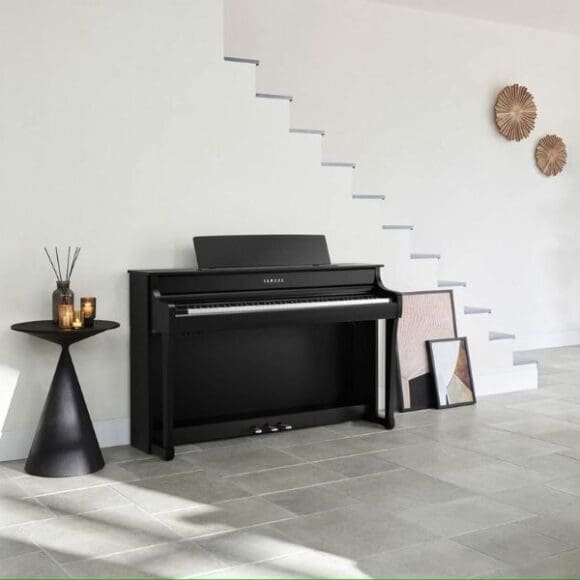
Does practise always make perfect? Is there such a thing as too much practise?
Whatever your level – young novice or experienced pianist – ideally, you’re playing the piano because you love it. Practise should feel like fun, but to get the most out of the time you play, it can still help to create structure and keep a check on the hours you put in.
How long should that be, exactly? Let’s find out…
How often should you practise the piano?
The key here is frequency rather than the amount of time you specifically play for. Obviously, duration is important, but trying to make sure you spend time playing every day helps to establish good habits. A small daily stint is usually seen as preferable to cramming a week’s worth of practise into one session.
So we know it’s important to try and schedule in daily playing – but how long should you play for?
The answer to this one largely depends on your playing level:
For professionals
A professional pianist will typically spend up to 4 hours a day practising, possibly more.
For new learners
New starters usually benefit from shorter sessions.
There’s a lot to take on board, not forgetting the new demands being placed on hands and posture, so it’s important not to overdo things. Keeping sessions short helps to maintain focus. It also allows the body to adjust gradually without aches and pains.
For children
Similar to new learners, children will benefit more from shorter time spans. As a guide, it’s recommended that:
- Children between 3-4 years practise for 10-15 minutes per day
- Children between 5-10 years practise for 20 minutes per day
- Children aged 13 and over practise for 30 minutes per day, upping this to around 45 minutes to 1 hour as they become more adept.

9 tips for proficient piano practise
1. Make a schedule
Even finding 10 minutes in your day to sit down at the piano can be easier said than done. To help, it’s recommended to make a schedule – and stick to it!
It also helps if you try to keep to a similar routine, building in good habits that become a normal part of your day – like brushing your teeth and eating lunch.
2. Remember to warm-up
You wouldn’t go for a jog without doing a few stretches first, and the same goes for playing the piano. Always start by running through your scales, which will help to warm up your hands and fingers.
3. Tackle the tough parts
You don’t always need to play from start to finish. If a few tricky bars are causing you trouble, focus on just these. Repeat this tricky stretch until you nail it.
4. Take a break
New learners tend to benefit from short sessions, but for any player, it can help to take a quick break. Get up and walk around, stretch your back, wriggle your fingers. A few minutes spent doing this can help to avoid mental and physical fatigue.
If you’re practising for several hours in a day, try splitting the time into shorter morning and evening sessions, so it’s not all in one intense time frame.
5. Make sure you’re comfortable
Crucial if you’re playing for any length of time, you need to be sitting comfortably at your piano with a stool that encourages the correct posture (check out our blog on how to pick a piano stool). It’s also important to have adequate lighting, to avoid eye strain.
6. Get rid of distractions
Think about where your piano sits. Ideally, try to position it somewhere you won’t be constantly distracted – or feel like you’re causing a disturbance.
Silent pianos, which can be paired with headphones, allow you to block out external noises and focus solely on the sound you are creating.
7. Set goals
Where do you want to be? Whether it’s achieving a specific grade level, learning a favourite song, or acing an audition, having a particular aim can help to keep you on track.
8. Avoid burnout
Overkill the piano practise and not only do you risk injury, but the chances are you’ll sap the enjoyment out of it, too. Whilst persevering is important, so is accepting that there will be good days and bad. If you’re just not feeling it, stop. You can always play for a little longer tomorrow instead.
And the most important part?
Perhaps the most crucial element in all of this? The piano itself.
You need a piano that is comfortable and works for you – fitting perfectly into your life and routine.
That’s where we come in. At Richard Lawson Pianos, we are experienced piano dealers, with an extensive range of new and pre-owned pianos for sale. Each one comes with a 30-day trial period, an impressive 5-year warranty, and is guaranteed to make every second you spend practising an absolute pleasure.
Shop the range now or talk to a member of the team to find out more about the services we offer.














 Reviews
Reviews